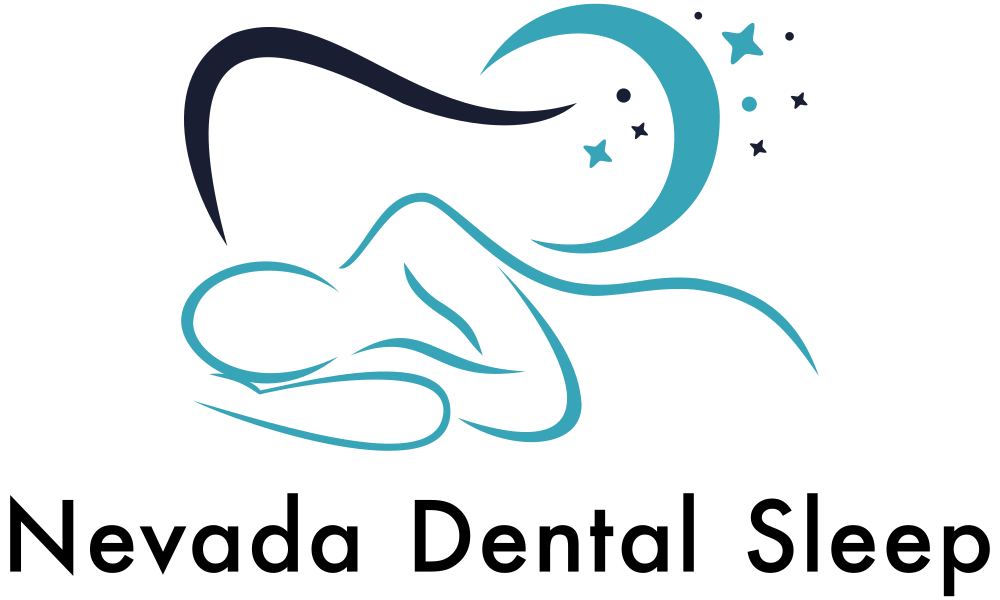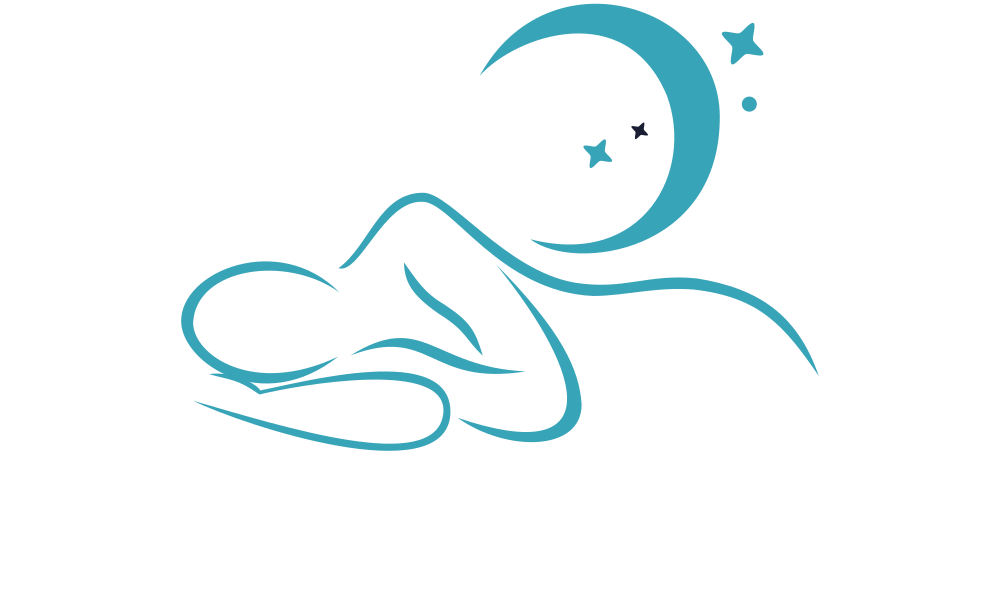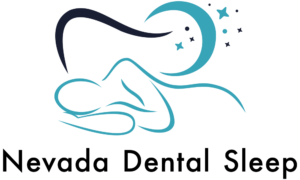Do you wake up feeling tired, even after a full night’s sleep? Has your partner mentioned that you snore loudly or stop breathing during the night? These could be signs of sleep apnea, a serious but treatable sleep disorder that affects millions of Americans—many of whom don’t even know they ha
Sleep apnea doesn’t just make you feel tired. Left untreated, it can contribute to serious health conditions like high blood pressure, heart disease, diabetes, and depression. That’s why recognizing the signs early—and seeking treatment—is so important.
At Nevada Dental Sleep, Dr. Jerry Hu helps patients identify and manage sleep apnea with personalized care and effective alternatives to CPAP. In this article, we’ll go over the most common signs of sleep apnea, how it’s diagnosed, and what your treatment options are—especially if you’re looking for a more comfortable, portable solution like oral appliance therapy.
What Is Sleep Apnea?
Sleep apnea is a disorder that causes you to stop breathing repeatedly during sleep. The most common type is obstructive sleep apnea (OSA), which occurs when the muscles in the back of your throat relax too much, blocking the airway. When this happens, your body is briefly jolted awake to resume breathing—sometimes hundreds of times a night—without you even realizing it.
These constant disruptions prevent your body from reaching deep, restorative sleep. As a result, you wake up feeling tired, and your body starts to suffer the effects of chronic oxygen deprivation and sleep deprivation.
Most Common Signs of Sleep Apnea
1. Loud, Persistent Snoring
Snoring is one of the most obvious and common signs of sleep apnea, especially when it’s loud and chronic. While not everyone who snores has sleep apnea, nearly everyone with sleep apnea snores.
If your snoring is accompanied by gasping, choking, or pauses in breathing, it’s especially important to get checked.
2. Excessive Daytime Fatigue
Do you feel exhausted during the day, even after a full night in bed? Sleep apnea disrupts your sleep cycles and prevents your body from fully resting. This can lead to overwhelming fatigue that affects your work, relationships, and even your safety.
3. Morning Headaches
People with sleep apnea often wake up with dull, throbbing headaches. These are usually caused by oxygen deprivation during apneic episodes, which can lead to pressure changes in the brain.
4. Dry Mouth or Sore Throat
Waking up with a dry mouth or sore throat is another potential indicator. This is often caused by mouth breathing during sleep, which happens when your airway is obstructed and you compensate by breathing through your mouth.
5. Difficulty Concentrating and Memory Problems
Interrupted sleep affects more than just energy. It also disrupts brain function, making it harder to focus, remember things, and stay sharp throughout the day. Many people report feeling foggy or irritable.
6. Mood Changes and Depression
Chronic sleep deprivation can take a serious toll on your mental health. Sleep apnea has been linked to anxiety, depression, and mood swings, often improving once the condition is properly treated.
7. High Blood Pressure or Heart Issues
Sleep apnea forces your body to repeatedly jolt awake and can lead to chronic increases in blood pressure. Over time, this increases your risk for heart attacks, arrhythmias, and stroke.
8. Frequent Nighttime Urination
Known as nocturia, getting up multiple times a night to urinate can be linked to untreated sleep apnea. The frequent arousals caused by apnea affect hormone levels that regulate fluid retention.
Who’s at Risk?
Anyone can develop sleep apnea, but certain risk factors make it more likely:
• Being overweight
• Having a large neck or small jaw
• Family history of sleep apnea
• Smoking or alcohol use
• Chronic nasal congestion
• Being male or postmenopausal
Even people who don’t fit the typical profile can develop sleep apnea. If you notice the symptoms, don’t wait to get checked—even “skinny” or otherwise healthy people can have OSA.
How Sleep Apnea Is Diagnosed
The first step in diagnosing sleep apnea is to talk to a sleep specialist or qualified provider like Dr. Hu. If you exhibit symptoms, a sleep study will likely be recommended.
There are two main types of sleep studies:
• In-lab sleep study (polysomnography)
This test is conducted overnight in a sleep center, where your breathing, heart rate, brain waves, and oxygen levels are monitored.
• At-home sleep apnea test
This option is more convenient and is often used to confirm suspected obstructive sleep apnea. It tracks breathing patterns, oxygen levels, and heart rate while you sleep in your own bed.
At Nevada Dental Sleep, we work closely with trusted Las Vegas sleep centers to make sure you get the right testing and diagnosis.
Treatment Options for Sleep Apnea
Once you’ve been diagnosed, your sleep doctor will discuss treatment options. The most common treatment is CPAP therapy, which uses a machine to force air into your airway through a mask. But while CPAP can be effective, many people stop using it due to discomfort.
If you have mild to moderate sleep apnea—or simply can’t tolerate CPAP—oral appliance therapy offers a compelling alternative.
What Is Oral Appliance Therapy?
Oral appliance therapy uses a custom-made dental device worn at night to reposition your jaw and keep your airway open. These devices look similar to sports mouthguards but are designed specifically to treat sleep apnea.
They are:
• Comfortable
• Non-invasive
• Silent
• Travel-friendly
• Highly effective for mild to moderate OSA
At Nevada Dental Sleep, Dr. Jerry Hu uses digital scans to create a precise fit for every patient. The result is a comfortable, reliable treatment that people actually use—night after night.
Why Compliance Matters More Than the Method
Whether it’s CPAP, an oral appliance, or surgery, the most important part of sleep apnea treatment is that you stick with it. If your CPAP is sitting on a shelf collecting dust, it’s not helping you.
That’s why oral appliance therapy is such a valuable option. It’s easy to use, comfortable to wear, and doesn’t interfere with your lifestyle, which means patients are more likely to actually use it consistently—and see results.
What Makes Nevada Dental Sleep Different?
At Nevada Dental Sleep, we don’t just treat symptoms—we treat people. Dr. Hu and the team specialize in dental sleep medicine, a unique branch of care focused entirely on sleep-related breathing disorders.
Here’s what sets us apart:
• Custom treatment plans
• State-of-the-art scanning technology
• Collaboration with sleep physicians
• Comfort-first approach
• Education and follow-up to ensure results
From your first consultation to your final fitting and beyond, we’re here to help you sleep better—and live better.
What to Do If You Suspect Sleep Apnea
If you’ve read this far and think you might have sleep apnea, take action. Here’s a simple plan:
1. Schedule a consultation with Nevada Dental Sleep.
2. Get referred for a sleep study through one of our partner centers in Las Vegas.
3. Review your diagnosis with Dr. Hu and discuss your treatment options.
4. Begin therapy—whether it’s an oral appliance or another solution—and start getting real rest.
Sleep apnea won’t go away on its own. The sooner you act, the sooner you can feel like yourself again.
Final Thoughts
Sleep apnea is more than just snoring or being tired—it’s a medical condition that affects every area of your health, from your brain and heart to your mood and metabolism. If you’re noticing signs of sleep apnea, or if your partner is concerned about your snoring, don’t wait to get checked.
At Nevada Dental Sleep, we specialize in comfortable, effective CPAP alternatives for sleep apnea through custom oral appliance therapy. With personalized care from Dr. Jerry Hu, you can breathe better, sleep deeper, and finally wake up feeling refreshed.
Ready to take the first step? Contact Nevada Dental Sleep today and find out if oral appliance therapy is right for you.


